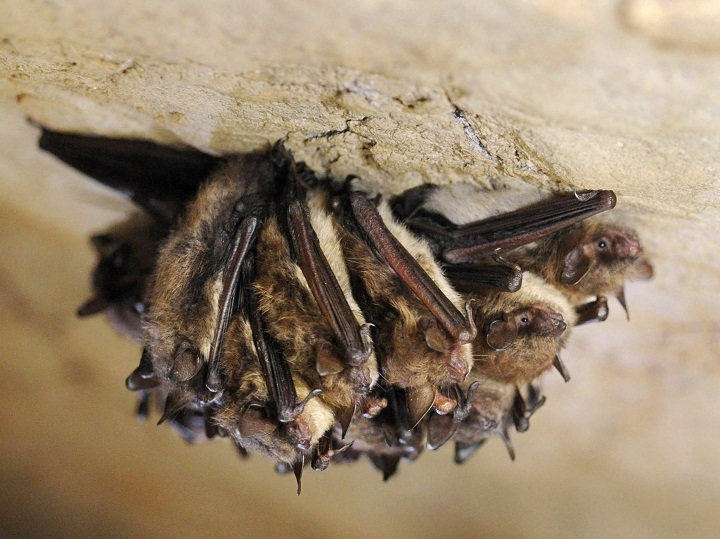A B.C. bat conservation society says a recent funding boost will do many things, including funding more research of a fatal wildlife disease.

The Got Bats? program says it received more than $185,000 from the Habitat Conservation Trust Foundation (HCTF) and the Forest Enhancement Society of BC (FESBC).
That money, says a Got Bats? spokesperson, will go towards monitoring B.C.’s bat populations, encouraging public participation in bat conservation and researching white-nose syndrome.
One website says “white-nose syndrome is a disease caused by a fungus that affects hibernating bats. It is considered one of the worst wildlife diseases in modern times, having killed millions of bats across North America.”
Got Bats? says part of the funding will support research into a promising new probiotic that could prevent the disease.
The funding will also help promote bat-friendly communities, working with landowners to preserve colonies, building bat houses, and providing information on bats through presentations at schools and community events.

Get breaking National news
WATCH BELOW (Aired April 13, 2019): Bat-friendly Peachland given award for conservation efforts

“We want to make sure British Columbians have a resource where they can get accurate information about bats,” Got Bats? co-ordinator Mandy Kellner said in a press release.
“Bats are an essential part of the ecosystem, eating insects and controlling agricultural and forest pests, but misinformation and fear can really have a negative impact on efforts to protect existing colonies.”
Kellner says outreach programs and public initiatives are also important in the fight against white-nose syndrome.
WATCH BELOW (Aired Oct. 31, 2018): All About Bats: How you can help our bat population

According to Got Bats?, the disease was found in Washington state in 2016.
“Bat species in the west are hard to monitor because they hibernate in small numbers in trees and rock crevices, and occasionally in buildings,” said Cori Lausen, a bat specialist with the Wildlife Conservation Society of Canada.
“Through these projects, we have great baseline data so we will know when white-nose syndrome arrives, and have developed a probiotic and applicator so we can help the bats survive if it does. It’s a race against the clock, involving cutting-edge work where we continue to learn something new every day.”
For more about Got Bats?, click here.


Comments
Want to discuss? Please read our Commenting Policy first.